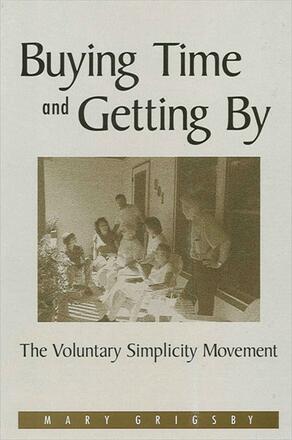
Buying Time and Getting By
The Voluntary Simplicity Movement
Alternative formats available from:
An exploration of the voluntary simplicity movement including comments from simple livers and a look at class, race, and gender in this movement.
Description
Buying Time and Getting By provides a detailed account of the voluntary simplicity movement, which took off in the United States in the late 1980s and early 1990s. The concept of voluntary simplicity encompasses both self-change aimed at bringing personal practice into alignment with ecological values and cultural change that rejects consumerist values and careerism. While simple livers struggle with self-change, they work toward the broader goals of a sustainable global environment, sustainable communities, increased equality in access to resources, and economies aimed at human quality of life rather than profit. Author Mary Grigsby looks inside the movement at the daily lives of participants and includes their own accounts of their efforts. She also uses reflexive empirical analysis to explore race, class, and gender in relation to the movement. The influence of the dominant culture and institutionalized power in shaping the movement are balanced with the importance of participants' dynamic identity work.
Mary Grigsby is Associate Professor of Rural Sociology at the University of Missouri at Columbia.